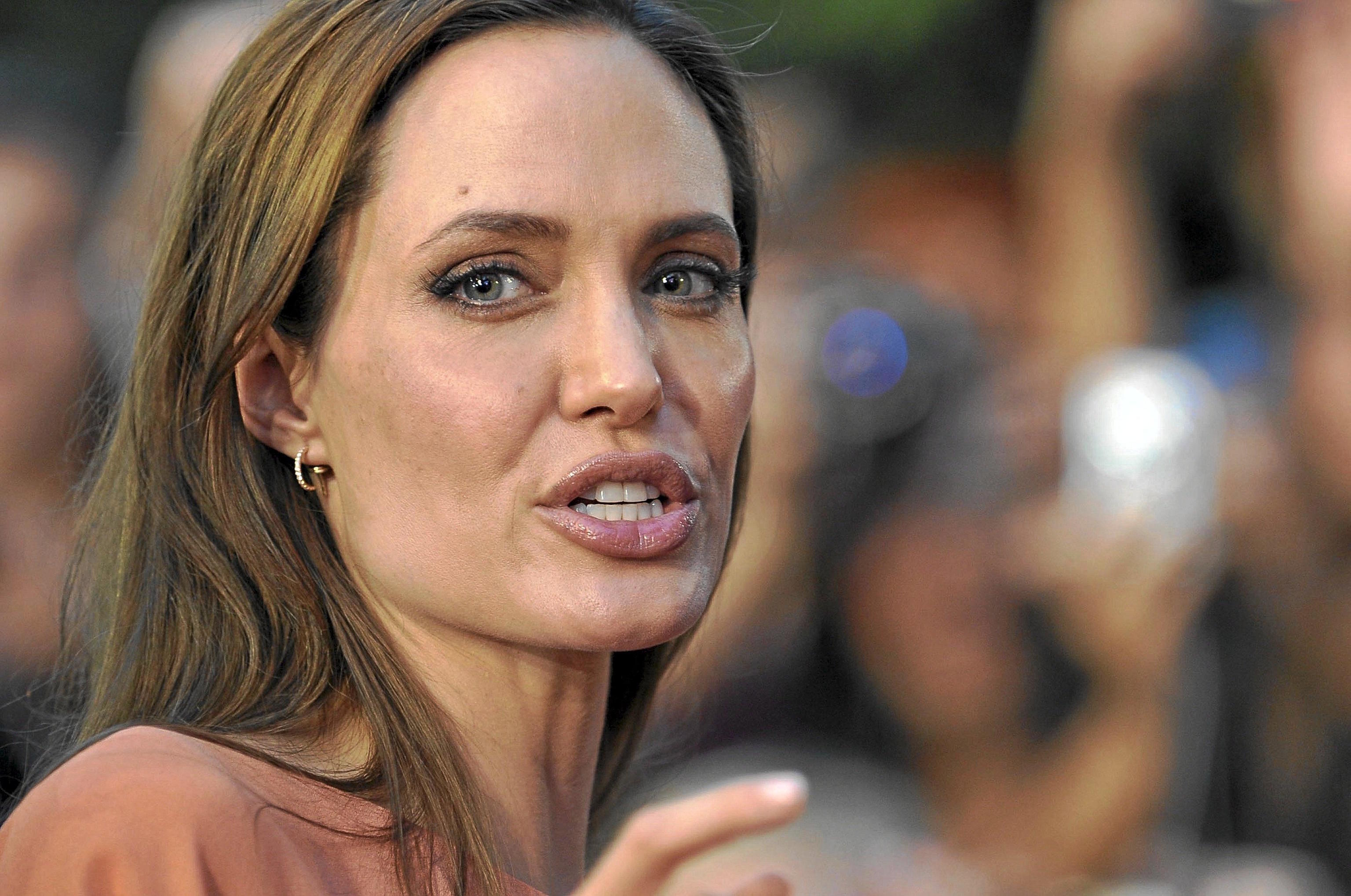First and foremost, Angelina Jolie. The last time Angelina Jolie was at the San Sebastian Festival was never. That is to say, nothing was known around here about the actress and occasional director. But nothing. First and foremost, Angelina Jolie, we were saying. Her appearance was due to Couture, the film by Alice Winocour that literally, and the expression is from the director herself, "fractures and cuts" the star's body. It could be said that it is the most personal of the films in which the star has participated because, in its own way, and with the necessary distance, it tells her own story. It is the story of a woman who, faced with the imminent threat of cancer, undergoes a radical mastectomy. That's in fiction. In reality, it was in 2013 when she herself underwent a similar procedure.
And so, the film reveals as never before the person behind the veil of fame, the woman hidden in the popular myth, the person, inherently vulnerable, who is not visible behind the character, naturally impregnable. First and foremost, Angelina Jolie.
"I lost my mother and grandmother to cancer. So I had a double mastectomy and had my ovaries removed. It was my choice. It is important to be able to choose," she commented midway through her media appearance to make it clear to what extent what concerns her is not just another role. And she continued: "I don't regret it. There is still much to be said on this matter, because rarely do you feel so vulnerable. Cancer directly affects how women feel. When I read the script, I realized that desire was part of the film. And this is important, it is important to keep living despite everything and to keep having desire. Cancer doesn't have to end sexual desire." Then, remembering her mother, she became emotional. "I'm going to stop here because I don't want to cry," she said, and she did shed a few tears.
The film follows the lives of four women all linked to the world of fashion: a model, a makeup artist, a seamstress, and a film director. The first (Anyier Anei) travels from Sudan to Paris in what is most similar to a survival exercise; the second (Ella Rumpf) wants to be a writer above any eyeshadow; the third (Garance Marillier) sews, with needle and thread, her first important dress (the one that opens the exhibition), and the last (Jolie) has to make a short film for the inaugural fashion show while discovering the tumor that threatens everything. Winocour uses these stories to weave an unprecedented narrative not only of fashion from the backstage, but also of the woman's body itself, always intervened, measured, calculated, and ultimately put up for sale. That's how it is.
Couture is surprising, sharp, and vibrant as it moves through the crowded hallways or simmers among the nerves of the imminent premiere. Let's say that the grace and virtue of the work of the director of Proxima lies in decoding and turning many of the standardized images of Fashion Week and its surroundings. It loses momentum, however, when it gets entangled in melodramas and anxieties that are also somewhat stereotypical. But above all considerations, the work of Angelina Jolie, who literally throws herself to the lions like probably never before, is surprising.
Of course, we are talking about the intimate lions and beasts. But there are also the other wild animals, those outside. How do you see what is happening right now in your country regarding the attack on freedom of expression? was the question. "Phew." Pause. Another pause. "It's a very difficult question. I love my country, but I don't recognize it at this moment... Any action that divides or limits free expression is very dangerous. We are living in very dangerous times right now." And that's it.
Be that as it may, and to return to Couture, what remains is a film that is uneven, brilliant at times, somewhat pretentious at moments, and always intriguing thanks to its protagonist. First and foremost, Angelina Jolie.
Le Cri des Gardes: a very subdued version of Claire Denis (**)
The official section was losing intensity as the day progressed. The detonation of Maspalomas was followed by the slight enigma of Couture to end with the subdued, rather lifeless tone of Le Cri des Gardes (The Cry of the Guards), the less polished version of Claire Denis's always energetic cinema. Indeed, it is hard to disagree with a living legend like the director of masterpieces such as Chocolat (1988), Beau Travail (1999), and White Material (2009), all set in the Africa where she grew up. This latest work returns to the same continent to insist on its punctual deconstruction of issues such as colonialism, exploitation, and the guilt feelings related precisely to colonialism and exploitation.
A man (the same Isaach de Bankole who starred in Chocolat) goes every day to the fence that separates an industrial exploitation from the rest of the world. There, night after night, he asks for his brother's corpse. He demands it from the boss played by Matt Dillon. What follows is the slow and very nocturnal gesture of a demand that is also the testimony of the greatest of affronts. The film, as is customary in the author's cinema, delves into the viewer's gaze with a gesture of anguish. Or, at least, that's how it happens for just a moment, a moment of serious, almost opaque light. The issues, which exist, have to do with the helplessness of a repetitive, flat, and merciless script that leaves Dillon with a performance very close to parody. What a pity.
